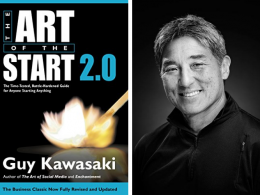SEO trends have changed dramatically over the years. Algorithms are constantly evolving thanks to new technological innovations. Search engines like Google need your curiosity and attentiveness all year round.
Since 2022 is not far away, it’s time to think about the SEO trends you want to get ahead of. Digital marketers, businesses, and marketing agencies need to prepare for 2022, perhaps more than ever. Fortunately, we’ve put together some of the most important SEO tricks and strategies to help you prepare for the upcoming event.
Top 6 SEO Trends in 2022
- Trend #1: Algorithms: MUM
MUM (Multitask Unit Model) can respond to complex search queries by analyzing video, images, and text in 75 languages. In a nutshell, MUM is an artificial intelligence model that can understand a user’s emotions, context, abstraction, and intent, and based on this, provides a unique and appropriate response to a user’s request. With MUM, users don’t have to do multiple queries till they find the apt keyword that’s going to give them the needed answer. Instead, Google gives you the desired result in a single conversational query. The MUM’s multi-mode means users can combine text, image, and voice to get relevant results for their queries. MUM is still in the testing phase. But you should expect it to work soon.
- Trend #2: LaMDA
At the Google I/O conference, Google introduced the Language Model for Dialogue Applications (LaMDA). As the name suggests, LaMDA is a machine learning model designed for conversations and based on Google’s proprietary neural network architecture, Transformer. If MUM is about recognizing the emotions and intentions of people behind a search, LaMDA wants to communicate and deliver results based on the information you provide. LaMDA is only part of Google’s overall strategy. You can expect larger, more advanced AI models that use interactive queries to find and rank pages. If you haven’t already started optimizing your site for voice search, now is the right time.

- Trend #3: Mobile Friendliness
Mobile devices have already surpassed desktop as 55% of all internet traffic in 2020 originates from mobile devices and 42% on the desktop. As mobile web users grow, it is important for marketers to provide mobile usability. Google also announced its first mobile indexing in 2018. Search engine giants use mobile versions of their websites for indexing. Mobile-first indexing also applies by default to websites published after July 1, 2019. As a result, mobility will become a key focus for marketers in the coming year.
- Trend #4: Better Video Ranking
Video has become one of the pillars of a robust SEO strategy. Recently, the number of video platforms such as YouTube, Instagram Reels, TikTok, and Facebook Watch has risen to a great level, and increased user interest in visual content. People are more likely to interact with a video than with plain text. Embedding video on your website has a direct impact on SEO. Video content is ranked and 50 times more likely to generate traffic than text content. This has led many brands to use video for their SEO and marketing strategies. In the future, more marketers will use video marketing to steer more traffic and engagement.
- Trend #5: EAT Principle
Google’s May 2018 Medic update makes it clear that Google will explicitly prioritize high-quality and reliable content over-optimized web pages. Traditional SEO techniques are still effective, but there has been a significant shift in the needle with quality and reliability. The Medic update introduces the Google EAT (Expertise, Authoritativeness, and Trustworthiness) principle for ranking web pages. Therefore, reputable websites that publish reliable content written and reviewed by experts are going to rank higher. This principle applies to all websites, but mainly focuses on YMYL (Your Money, Your Life) sites. This includes websites in health, law, finance, education, and other fields that steer life-changing decisions.

- Trend #6: Improved Ranking for Long-Form High-Quality Content
Long content has always been a cornerstone of SEO and will keep continuing. So, how long will the content be now? The average length of Google-ranked pages is 2416 words. For voice search, this number is slightly reduced to 2312 words. Overall, content that is longer than 2,000 words tends to rank higher and increase traffic. Longer texts are more detailed and provide complete and in-depth information about the subject. So in the future, we will see more marketers posting longer and more detailed content.
The Key Takeaway
2021 has been an amazing year for SEO professionals. Most of the changes are related to the 2020 announcement, but the changes show an increased focus on AI-powered results that combine pages, videos, and other media. UX is more important than ever and only marketers who can transcend the technical quality of their SEO work will succeed. If you’ve read this far, these 6 SEO trends are your chance to set your site apart and make the most of the competitive SEO world we live in.
To know more about small business trends in Canada, subscribe to our monthly CanadianSME Small Business Magazine.







